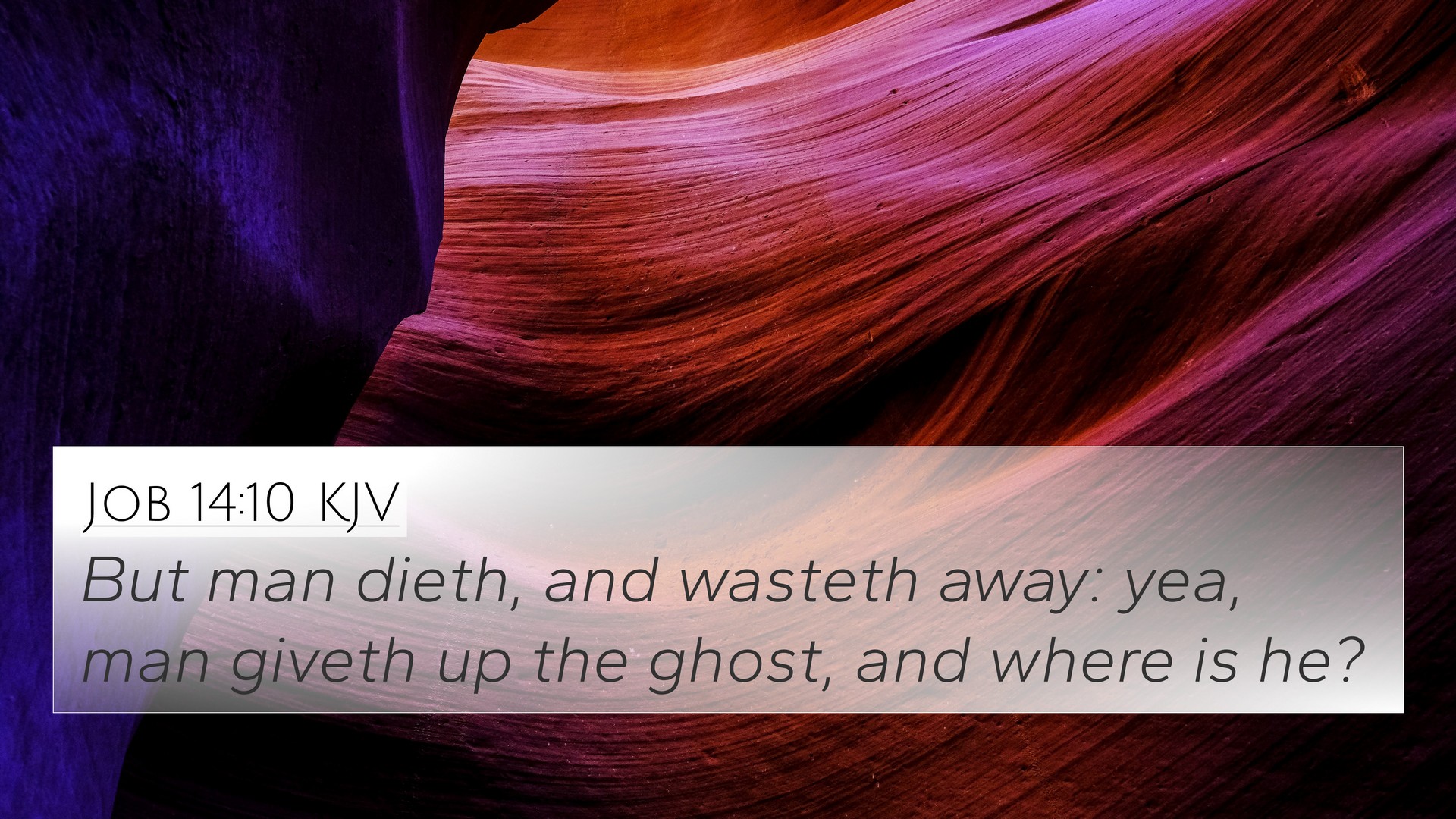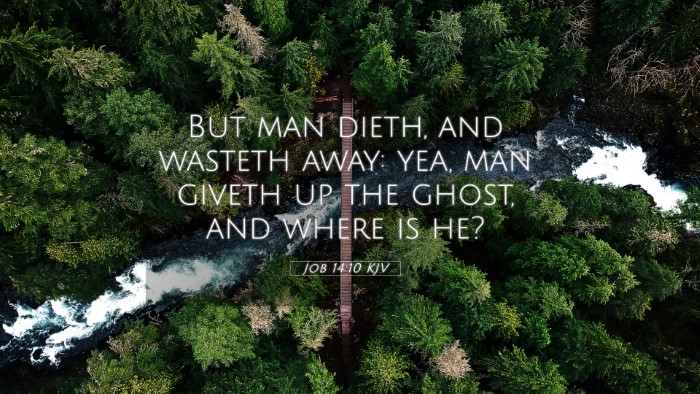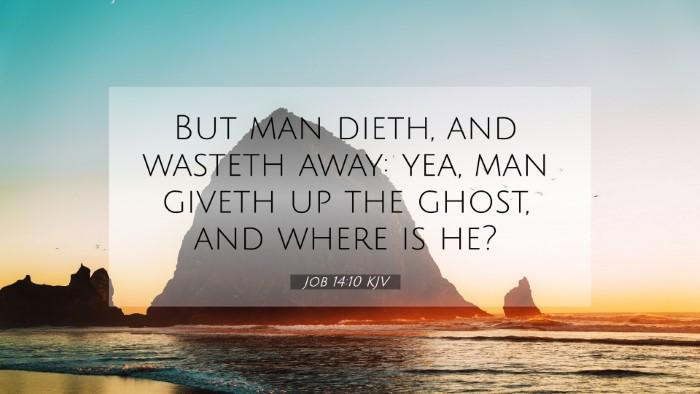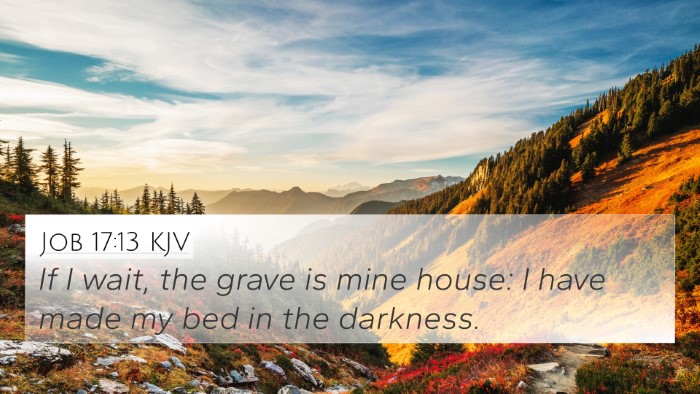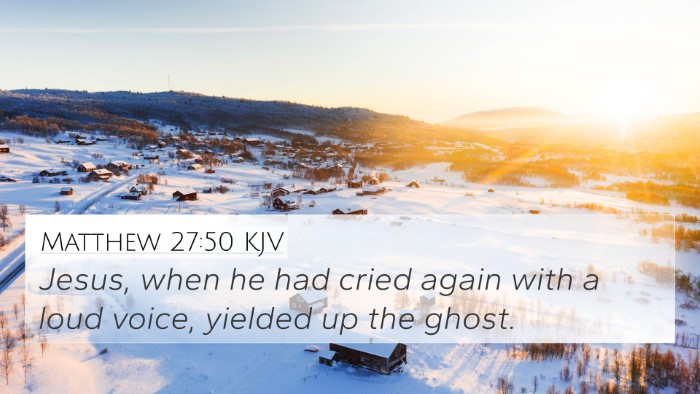Old Testament
Genesis Exodus Leviticus Numbers Deuteronomy Joshua Judges Ruth 1 Samuel 2 Samuel 1 Kings 2 Kings 1 Chronicles 2 Chronicles Ezra Nehemiah Esther Job Psalms Proverbs Ecclesiastes Song of Solomon Isaiah Jeremiah Lamentations Ezekiel Daniel Hosea Joel Amos Obadiah Jonah Micah Nahum Habakkuk Zephaniah Haggai Zechariah MalachiJob 14:10 Similar Verses
Job 14:10 Cross References
But man dieth, and wasteth away: yea, man giveth up the ghost, and where is he?
Uncover the Rich Themes and Topics of This Bible Verse
Listed below are the Bible themes associated with Job 14:10. We invite you to explore each theme to gain deeper insights into the Scriptures.
Job 14:10 Cross Reference Verses
This section features a detailed cross-reference designed to enrich your understanding of the Scriptures. Below, you will find carefully selected verses that echo the themes and teachings related to Job 14:10 KJV. Click on any image to explore detailed analyses of related Bible verses and uncover deeper theological insights.
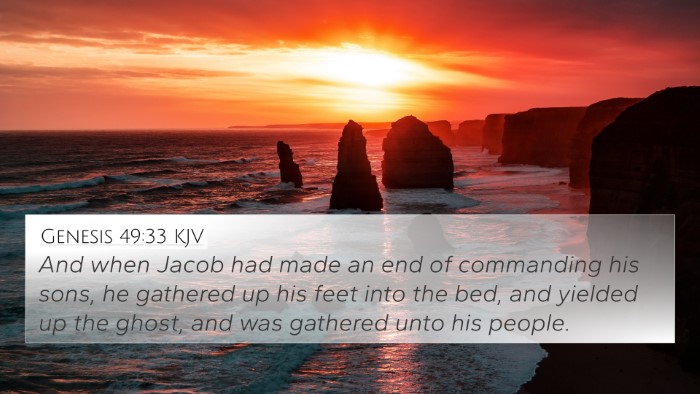
Genesis 49:33 (KJV) »
And when Jacob had made an end of commanding his sons, he gathered up his feet into the bed, and yielded up the ghost, and was gathered unto his people.
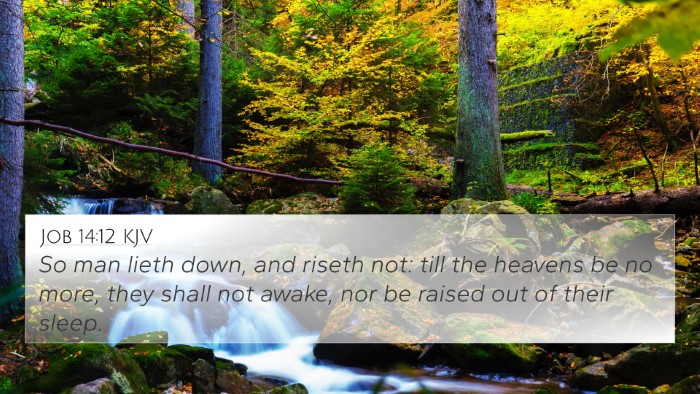
Job 14:12 (KJV) »
So man lieth down, and riseth not: till the heavens be no more, they shall not awake, nor be raised out of their sleep.
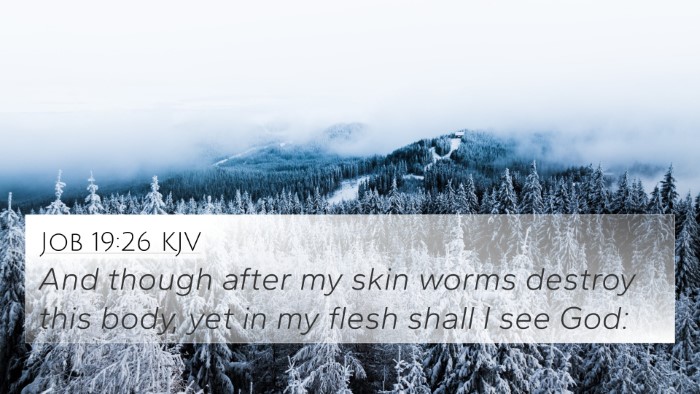
Job 19:26 (KJV) »
And though after my skin worms destroy this body, yet in my flesh shall I see God:
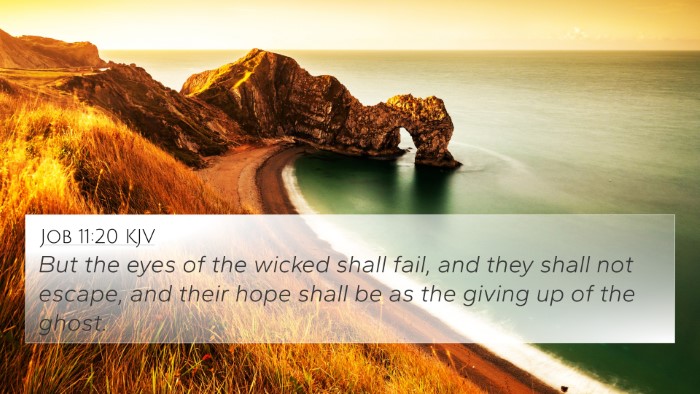
Job 11:20 (KJV) »
But the eyes of the wicked shall fail, and they shall not escape, and their hope shall be as the giving up of the ghost.
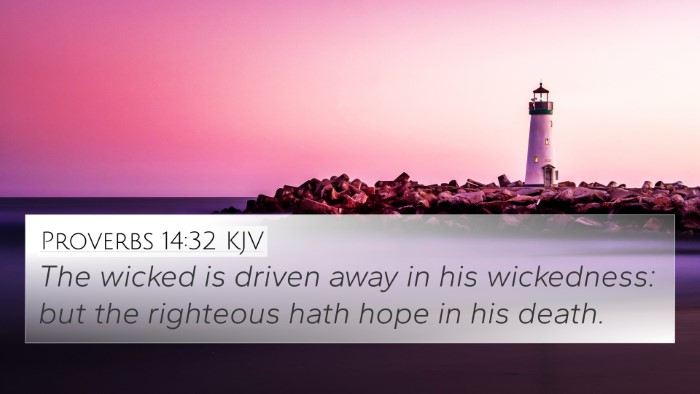
Proverbs 14:32 (KJV) »
The wicked is driven away in his wickedness: but the righteous hath hope in his death.
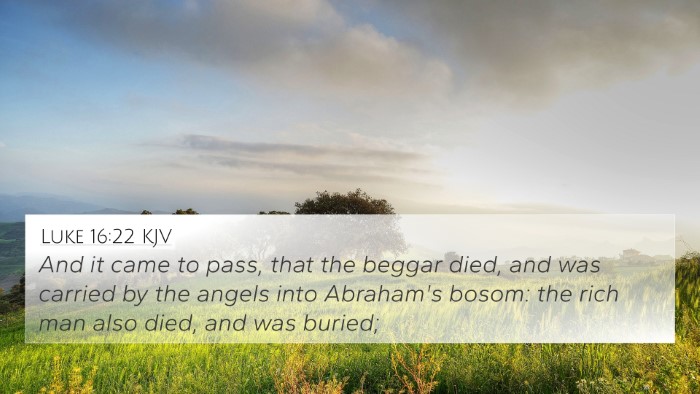
Luke 16:22 (KJV) »
And it came to pass, that the beggar died, and was carried by the angels into Abraham's bosom: the rich man also died, and was buried;
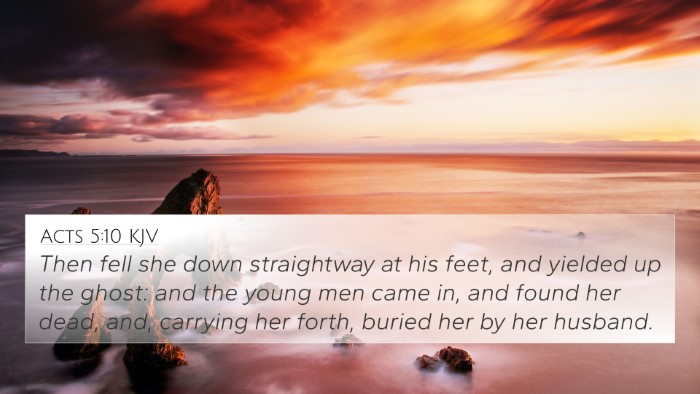
Acts 5:10 (KJV) »
Then fell she down straightway at his feet, and yielded up the ghost: and the young men came in, and found her dead, and, carrying her forth, buried her by her husband.
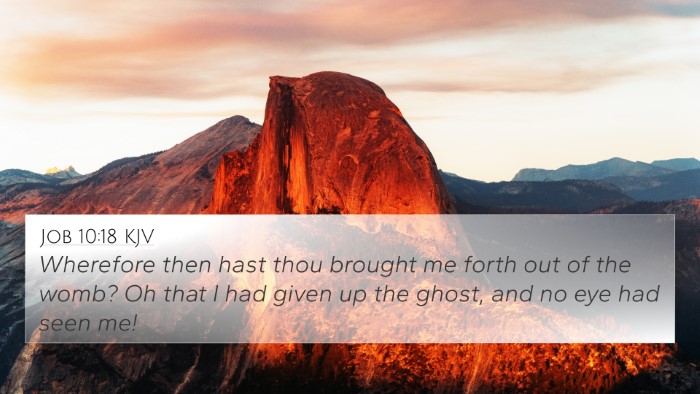
Job 10:18 (KJV) »
Wherefore then hast thou brought me forth out of the womb? Oh that I had given up the ghost, and no eye had seen me!
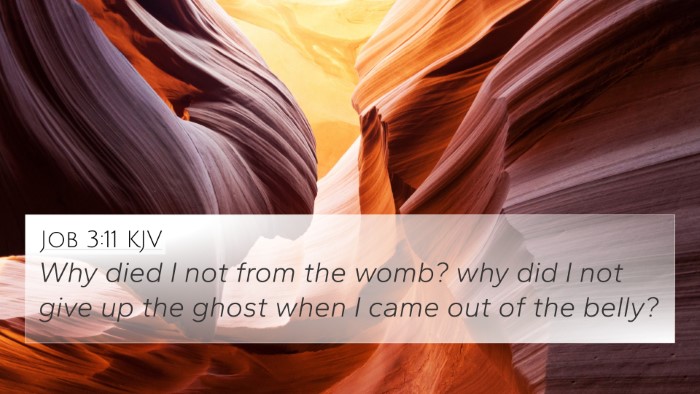
Job 3:11 (KJV) »
Why died I not from the womb? why did I not give up the ghost when I came out of the belly?
Job 14:10 Verse Analysis and Similar Verses
Understanding Job 14:10
Job 14:10 states: "But man dieth, and wasteth away: yea, man giveth up the ghost, and where is he?" This poignant verse encapsulates humanity's mortality and poses profound questions about life, death, and existence.
Summary of Insights from Commentaries
Combining the insights from public domain commentaries by Matthew Henry, Albert Barnes, and Adam Clarke, we see a layered understanding of this verse.
The Theme of Mortality
Matthew Henry discusses how this verse reflects the inevitable fate of mankind. He emphasizes that death is a reality that all humans must face, and it leads to questions about the afterlife and our spiritual state beyond death.
The Nature of Man
Albert Barnes expands on the nature of man as transient and frail. He highlights that the verse reminds believers of their humble origins and the shortness of life, urging a reflection on how one lives in this mortal state.
Existential Reflection
Adam Clarke offers an existential interpretation, questioning the permanence of one's existence and the legacy one leaves behind. Clarke indicates that death prompts a deeper understanding of life’s purpose and the human soul's journey.
Cross-References to Job 14:10
This verse resonates with several other passages in the Bible, enriching our understanding through Bible verse cross-references. Here are some key related verses:
- Psalm 90:3: "Thou turnest man to destruction; and sayest, Return, ye children of men." - Reflects on the fragility of life.
- Ecclesiastes 3:20: "All go unto one place; all are of the dust, and all turn to dust again." - Emphasizes the inevitability of death.
- Matthew 10:28: "And fear not them which kill the body, but are not able to kill the soul..." - Discusses the soul's immortality despite physical death.
- Hebrews 9:27: "And as it is appointed unto men once to die, but after this the judgment." - Reinforces the certainty of death and consequence.
- 1 Peter 1:24: "For all flesh is as grass, and all the glory of man as the flower of grass..." - Highlights human frailty.
- Job 10:9: "Remember, I beseech thee, that thou hast made me as the clay..." - Job’s reflection on mortality and divine creation.
- James 4:14: "For what is your life? It is even a vapor, that appeareth for a little time, and then vanisheth away." - Life’s temporal nature is further elaborated.
Connections Between Bible Verses
Through linking Bible scriptures, we see a common thread in emphasizing humanity's transient nature. This theme invites readers to contemplate their spiritual state and relationship with God.
Thematic Bible Verse Connections
- Human mortality is emphasized across the scriptures, encouraging believers to seek a deeper relationship with the divine.
- Concepts such as the vanity of life and the importance of focusing on eternal matters over earthly ones resonate throughout various books in the Bible.
Using Bible Cross-References
Understanding how to utilize a Bible cross-reference system can greatly enhance one's study of the scriptures. Here are a few tools:
- Bible Concordance: Useful for finding words and their occurrences within the text.
- Bible Cross-Reference Guide: Helps connect themes and ideas between verses effectively.
- Cross-Reference Bible Study: A method of studying scripture by linking related verses together.
Conclusion
Job 14:10 addresses profound questions of mortality, existence, and the human soul. Through comparative Bible verse analysis, believers are invited to reflect on their lives in relation to their beliefs about death and what lies beyond.
